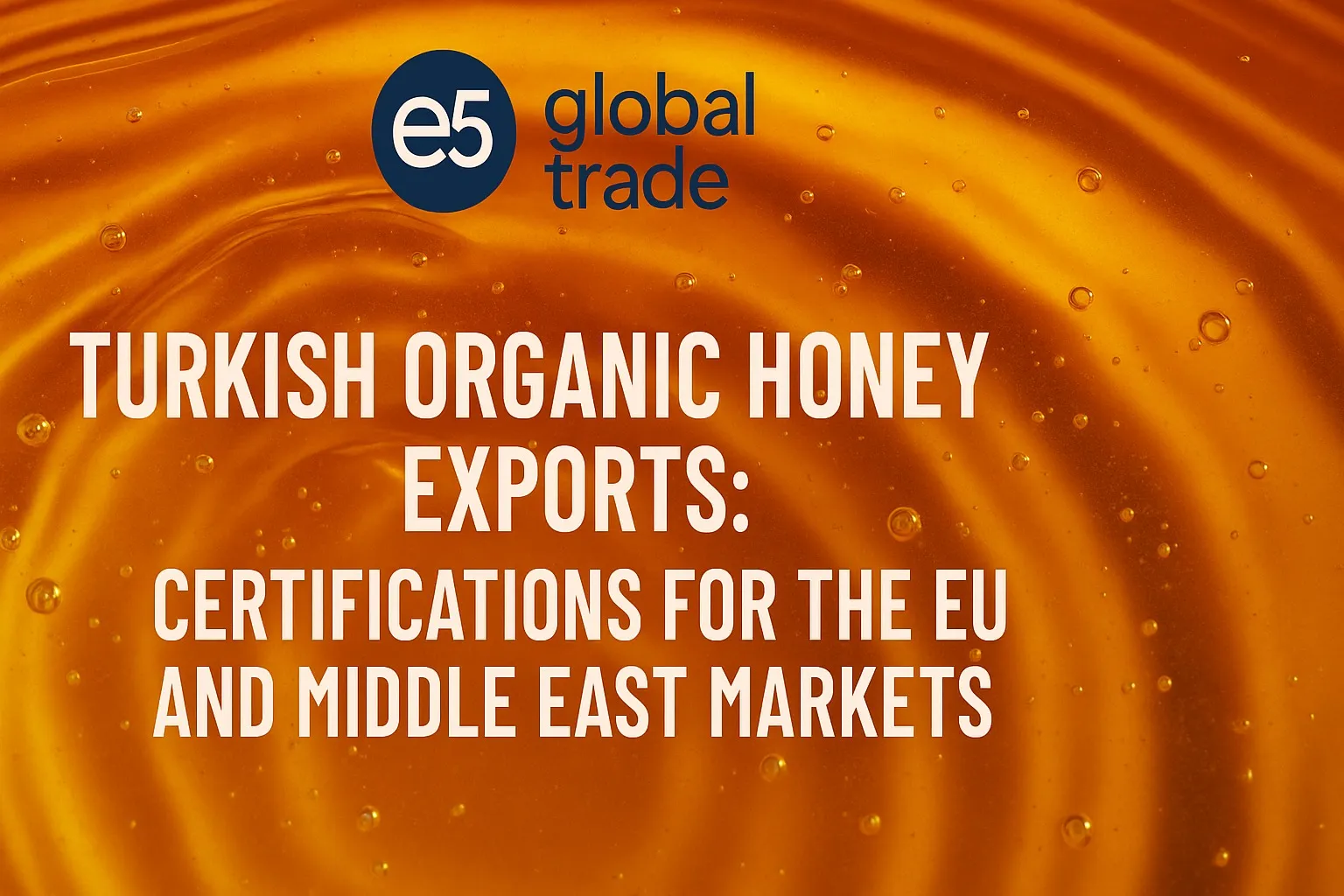Turkey, with its rich vegetation, diverse climate zones, and natural beekeeping traditions, is one of the leading countries in organic honey production worldwide. These natural advantages create high demand for Turkish organic honey, particularly in the European Union (EU) and Middle Eastern markets. However, simply producing high-quality products is not enough to export to these markets; internationally recognized certifications play a vital role. European Union Market and Certification Requirements: The EU has one of the most stringent standards for food safety and organic production. To export organic honey to the EU, producers are required to obtain EU Organic Certification. This certification requires meeting the following criteria: The honey must be produced using natural beekeeping methods, free from the influence of chemical pesticides, synthetic antibiotics, or GMO plants. The bees' feeding grounds must be free from environmental pollutants and have organic vegetation within a radius of at least 3-5 km. Organic contamination must be prevented during the production, packaging, and transportation processes of the product. Each production stage must be recorded and auditable. In addition to this certification, many EU countries (especially Germany, France, and Italy) may also request certifications such as ICS (Internal Control System)-compliant production and GAP (Good Agricultural Practices). Furthermore, due to the high level of consumer awareness in the EU market, transparency, ethical labeling, and genuine organic content are crucial. Middle East Market and Certification Dynamics: The demand for organic honey is increasing in the Middle East market (countries such as Saudi Arabia, the United Arab Emirates, Qatar, and Jordan). High-income segments are particularly sensitive to natural and healthy products. However, the certification approach in this region is more diverse than in the EU. Gulf Standardization Organization (GAC) countries may specifically require GSO Organic Certification. Some countries (e.g., Saudi Arabia) require halal certification for imported products. Therefore, Turkish producers must hold an official halal certificate demonstrating that the honey production process complies with halal rules. Furthermore, EU certification is highly recognized in the Middle Eastern market. Therefore, a product with an EU organic certification generates greater trust in the Middle East and may command a price premium. The Competitive Advantage of Certifications: Producers in Turkey should not only possess the correct certifications but also incorporate them into their marketing strategies. EU and Middle Eastern consumers verify the product's reliability through the organic logo on the packaging, geographical indications (e.g., "Muğla Pine Honey," "Anzer Honey"), and international certifications. This enhances brand reputation and fosters long-term business relationships. Conclusion: Success in Turkish organic honey exports depends not only on natural quality but also on compliance with international standards and official certifications. While the EU market is protected by strict controls, the Middle Eastern market prioritizes both organic and religious (halal) certifications. Therefore, by closely following both technical and legal frameworks and obtaining the correct certifications, Turkish producers can secure a lasting and competitive position in export markets. Certifications are no longer a requirement; they are also a signal of trust and a gateway to the market.
E5 Global Trade | Yazılar
Turkish organic honey exports: certifications for EU and Middle East markets


